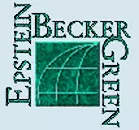The Internal Revenue Service ("IRS") has released Notice 2018-94, which extends the due date for furnishing the 2018 Form 1095-B and Form 1095-C to individuals from January 31, 2019 to March 4, 2019.
This extension is automatic, and, as a result, the IRS will not formally respond to any pending extension requests for furnishing the forms to individuals. In addition, filers do not need to submit a request or documentation to take advantage of this extension. Despite the extension, the IRS is encouraging employers and other coverage providers to furnish the 2018 statements as soon as they are able.
Forms 1095-B are used to report whether individuals have minimum essential coverage ("MEC") and, therefore, are not liable for the individual shared responsibility payment. Forms 1095-C are used to report information about offers of health coverage and enrollment in health coverage for employees, to determine whether an employer owes an employer shared responsibility payment, and to determine the eligibility of employees for the premium tax credit. Under the Affordable Care Act's ("ACA's") employer mandate, applicable large employers ("ALEs") (those employing on average at least 50 full-time employees and full-time equivalents in the prior calendar year), are required to offer MEC to at least 95% of their full-time employees (and their dependents) that is "affordable" and provides "minimum value" to avoid applicable penalties. 1
Notice 2018-94 does not extend the due date for filing the Forms 1094-B, 1095-B, 1094-C and 1095-C with the IRS, with the due date remaining February 28, 2019, if not filing electronically, or April 1, 2019, if filing electronically. Employers may still obtain an automatic 30-day extension to file the required forms by filing a Form 8809 with the IRS on or before the forms' due date. An employer may also receive an additional 30-day extension under certain hardship conditions.
Employers who fail to comply with the extended due dates for furnishing Forms 1095-B and 1095-C to individuals or for filing the Forms 1094-B, 1095-B, 1094-C and 1095-C are subject to penalties. However, an employer that fails to meet the relevant due dates should still furnish and file the required forms as soon as possible. The IRS will take such furnishing and filing of the forms into determining whether to decrease penalties for reasonable cause.
Below is a chart of the applicable deadlines for 2018 Forms and the applicable reporting entities:
| Reporting Entity |
No Plan |
Fully-Insured Plan | Self-Insured Plan |
Deadline for 2018 Forms |
|
Non-ALE |
No filing required. | No filing required. | Forms 1094-B and 1095-B | To individuals: March 4, 2019 To the IRS: February 28, 2019, if filing by paper; or April 1, 2019, if filing electronically. |
|
ALE |
Forms 1094-C and 1095-C (except Part III; leave blank). | Forms 1094-C and 1095-C (except Part III; leave blank). | Forms 1094-C and 1095-C for employees. Either B- or C-Series forms for non-employees. |
|
|
Insurance Provider |
No filing required. | Forms 1094-B and 1095-B. | Not applicable. |
Extension of Good Faith Relief
Similar to the good-faith relief provided in 2015, 2016, and 2017, the IRS will not impose penalties on employers that can show that they made good-faith efforts to comply with the requirements for calendar year 2018. This relief is available only for incorrect and incomplete information reported on the statements or returns, such as missing and inaccurate taxpayer identification numbers and dates of birth. In determining good faith, the IRS will consider whether an employer made reasonable efforts to comply with the requirements (e.g., gathering and transmitting the necessary data to an agent or testing its ability to transmit information).
Good faith relief is not available to employers who have failed to timely furnish or file a statement or comply with the regulations. However, if an employer is late filing a return, it may be possible to get a penalty abatement for failures that are due to reasonable cause and not willful neglect. To establish reasonable cause, an employer must show that it acted in a responsible manner and that the failure was due to significant mitigating factors or events beyond its control.
Individual Mandate and Reporting In Future Years
Individuals do not need to wait to receive the Form 1095-C to file their 2018 tax returns, but should keep these forms for their records. They may rely on other information provided by their employers or other service providers to determine their eligibility for a premium tax subsidy and confirming whether they have had MEC to avoid an individual mandate penalty in 2018. Individuals do not need to send the information they relied upon to the IRS when they send their returns.
Notably, while the individual shared responsibility payment is reduced to zero beginning January 1, 2019, the IRS will continue to study whether and how the reporting requirements should change, if at all, for future years. In the meantime, employers and other service providers should continue to collect information in 2019 needed to comply with all ACA reporting requirements.
Footnote
1 The penalties for failure to comply with these ACA requirements could result in penalties under Internal Revenue Code Section 4980H(a) ("A Penalty") and Section 4980H(b) ("B Penalty"). The "A Penalty" is $2,320 in 2018 ($2,500 in 2019) for each full-time employee (minus 30 employees) of the employer, including full-time employees who have MEC from another employer plan or another source. The "B Penalty" is $3,480 in 2018 ($3,750 in 2019) for each employee that obtains a premium tax credit.
The content of this article is intended to provide a general guide to the subject matter. Specialist advice should be sought about your specific circumstances.


